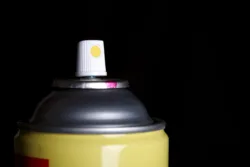Understanding the Addictive Nature of An Easily Obtained Drug

In search of a high, some people, especially young people and teens, will utilize household items and other easily obtainable substances to experience sensations of euphoria. Cleaning fluids, Tide pods, spray paints and glue are just some of the items that have historically been used by those unable to obtain illicit drugs.
Unfortunately, these euphoria-inducing household items are easily obtained, making it relatively simple for young people to become addicted to chemical substances. And while these inhalants may seem harmless since they are not illegal, their long-term effects can be detrimental to the health of those who use them.
What are whippets?
Several different inhalants exist, but we want to focus in particular on the kind of inhalant found in whipped cream canisters – whippets. Also known as “whip-its,” laughing gas and hippie crack, these small metal canisters are sought out for their contents: nitrous oxide.
Nitrous oxide is a gas with very limited medical use. “Nitrous oxide directly affects your oxygen levels. When you inhale nitrous oxide, it fills your lungs — blocking oxygen from getting into your body. This causes the oxygen levels in your brain and body to drop, leading to suffocation.”
The limited times when nitrous oxide is used effectively in medicine are most often for anesthetic procedures like sedation during dentistry or anesthesia for surgery.
According to the Cleveland Clinic, “In medical use, nitrous oxide is given in conjunction with pretty high-flow oxygen…That helps to keep you safe from some of the effects of the gas. People using it recreationally aren’t taking those precautions. They’re just getting straight shots of it, which can be harmful, particularly with repeated use.”
This is why whippets are so dangerous when used recreationally – they reduce oxygen flow to the brain in such a way that one’s life may be put at risk almost immediately.
What are the side effects of whippets?
In addition to putting the user’s life at risk, whippets have a long list of both short and long-term health effects.
The short-term effects of whippet use include:
- Dizziness and confusion
- Unconsciousness
- A loss of inhibition, which may lead to poor decision-making and impulsiveness or recklessness
- Poor coordination
- Uncontrollable laughing or giddiness
- Seizures
- Change in mood
- Tingling or numbness in the body
- Sweating
These may or may not appear in conjunction with the euphoric effect whippet inhalation may cause.
Long-term whippet use has been connected with a host of negative effects, including brain damage. This is because whippets block vitamin B12, which is an essential vitamin for making red blood cells, nerve health and repairing body tissues. “Whippets can cause your B12 levels to drop, which can lead to nerve damage in your brain and spinal cord, or even paralysis.”
Additionally, whippets cause other long-term effects like:
- Muscle atrophy, as a direct result of B12 deficiency
- Kidney and liver damage, due to the lack of oxygen in the blood
- Vision and hearing complications, as whippets are often inhaled with one’s head in a bag or an enclosed space like a car or closet
- Weakened immune system
- Cardiac complications
- Trouble with memory
- Paranoia
If you notice these symptoms in a loved one it may be time to talk with them about seeking help for inhalant abuse. Whippets can cause both mental and physical health challenges, making it important to get the proper help if the signs of whippet abuse appear.
Are whippets addictive?
The research on whether or not whippets themselves are addictive is limited. But there is no denying that the behaviors associated with whippet inhalation and abuse can have addictive tendencies. Teens may become addicted to the sensation of feeling high, however short-lived the ones experienced from whippets are.
This may cause teens to seek out other, long-lasting methods of inducing euphoria, making inhalant use a kind of gateway into other substance-using habits.
Signs a substance use disorder may be developing include:
- Changes in behavior, including increased irritability, mood swings or anxiety that was not present before
- Financial difficulties that have no obvious cause, or asking for money with no explanation as to where the funds are going
- Spending less time engaged in social activities previously enjoyed, or withdrawing from friends and family
- Struggling in school or work, including increased tardiness/absenteeism and faltering grades or work performance
- Increased reckless behavior
If you notice these signs beginning to develop in your teen, it may be an indicator that an underlying mental health concern is present and professional help is warranted.
Need additional help addressing inhalant abuse?
If your teen is struggling with whippet use, inhalant abuse or any other kind of substance use or mental health disorder, Pyramid Healthcare is here to help. To contact a counselor today, reach out to us online or give us a call anytime at 888-694-9996.
In search of a high, some people, especially young people and teens, will utilize household items and other easily obtainable substances to experience sensations of euphoria. Cleaning fluids, Tide pods, spray paints and glue are just some of the items that have historically been used by those unable to obtain illicit drugs.
Unfortunately, these euphoria-inducing household items are easily obtained, making it relatively simple for young people to become addicted to chemical substances. And while these inhalants may seem harmless since they are not illegal, their long-term effects can be detrimental to the health of those who use them.
What are whippets?
Several different inhalants exist, but we want to focus in particular on the kind of inhalant found in whipped cream canisters – whippets. Also known as “whip-its,” laughing gas and hippie crack, these small metal canisters are sought out for their contents: nitrous oxide.
Nitrous oxide is a gas with very limited medical use. “Nitrous oxide directly affects your oxygen levels. When you inhale nitrous oxide, it fills your lungs — blocking oxygen from getting into your body. This causes the oxygen levels in your brain and body to drop, leading to suffocation.”
The limited times when nitrous oxide is used effectively in medicine are most often for anesthetic procedures like sedation during dentistry or anesthesia for surgery.
According to the Cleveland Clinic, “In medical use, nitrous oxide is given in conjunction with pretty high-flow oxygen…That helps to keep you safe from some of the effects of the gas. People using it recreationally aren’t taking those precautions. They’re just getting straight shots of it, which can be harmful, particularly with repeated use.”
This is why whippets are so dangerous when used recreationally – they reduce oxygen flow to the brain in such a way that one’s life may be put at risk almost immediately.
What are the side effects of whippets?
In addition to putting the user’s life at risk, whippets have a long list of both short and long-term health effects.
The short-term effects of whippet use include:
- Dizziness and confusion
- Unconsciousness
- A loss of inhibition, which may lead to poor decision-making and impulsiveness or recklessness
- Poor coordination
- Uncontrollable laughing or giddiness
- Seizures
- Change in mood
- Tingling or numbness in the body
- Sweating
These may or may not appear in conjunction with the euphoric effect whippet inhalation may cause.
Long-term whippet use has been connected with a host of negative effects, including brain damage. This is because whippets block vitamin B12, which is an essential vitamin for making red blood cells, nerve health and repairing body tissues. “Whippets can cause your B12 levels to drop, which can lead to nerve damage in your brain and spinal cord, or even paralysis.”
Additionally, whippets cause other long-term effects like:
- Muscle atrophy, as a direct result of B12 deficiency
- Kidney and liver damage, due to the lack of oxygen in the blood
- Vision and hearing complications, as whippets are often inhaled with one’s head in a bag or an enclosed space like a car or closet
- Weakened immune system
- Cardiac complications
- Trouble with memory
- Paranoia
If you notice these symptoms in a loved one it may be time to talk with them about seeking help for inhalant abuse. Whippets can cause both mental and physical health challenges, making it important to get the proper help if the signs of whippet abuse appear.
Are whippets addictive?
The research on whether or not whippets themselves are addictive is limited. But there is no denying that the behaviors associated with whippet inhalation and abuse can have addictive tendencies. Teens may become addicted to the sensation of feeling high, however short-lived the ones experienced from whippets are.
This may cause teens to seek out other, long-lasting methods of inducing euphoria, making inhalant use a kind of gateway into other substance-using habits.
Signs a substance use disorder may be developing include:
- Changes in behavior, including increased irritability, mood swings or anxiety that was not present before
- Financial difficulties that have no obvious cause, or asking for money with no explanation as to where the funds are going
- Spending less time engaged in social activities previously enjoyed, or withdrawing from friends and family
- Struggling in school or work, including increased tardiness/absenteeism and faltering grades or work performance
- Increased reckless behavior
If you notice these signs beginning to develop in your teen, it may be an indicator that an underlying mental health concern is present and professional help is warranted.
Need additional help addressing inhalant abuse?
If your teen is struggling with whippet use, inhalant abuse or any other kind of substance use or mental health disorder, Pyramid Healthcare is here to help. To contact a counselor today, reach out to us online or give us a call anytime at 888-694-9996.






